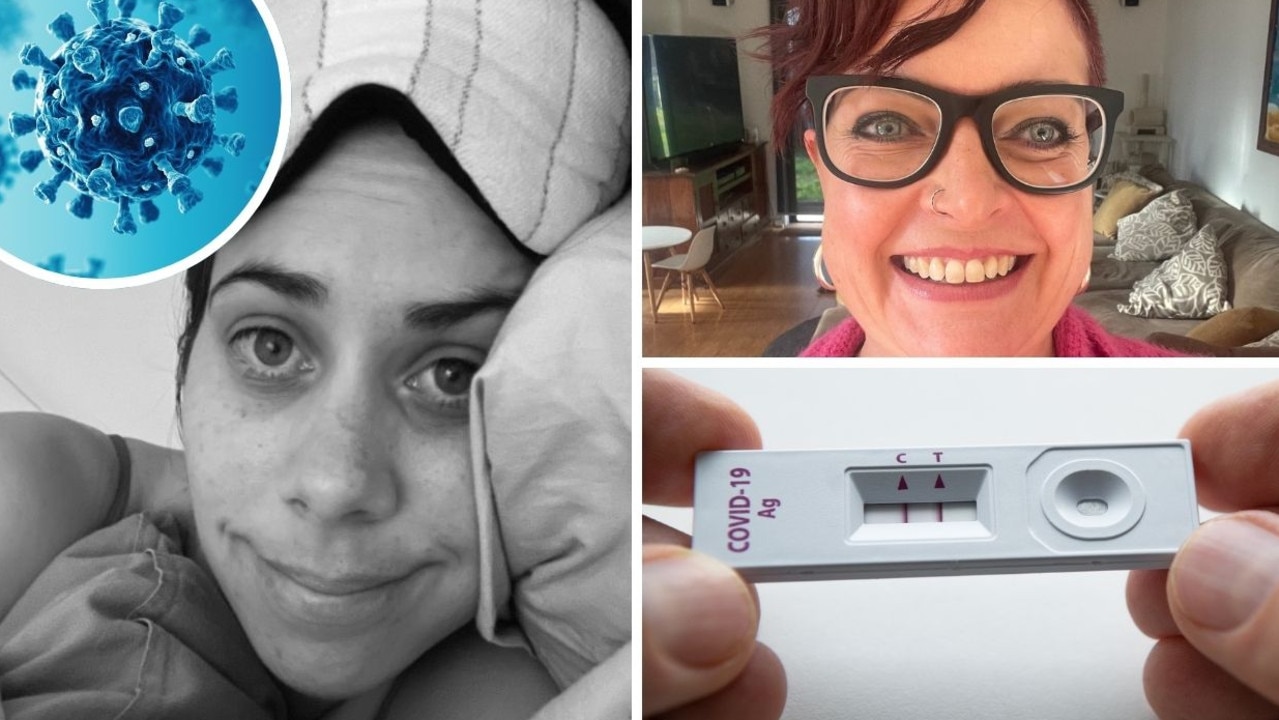Coronavirus Australia: Pfizer vaccine set for February rollout
Pfizer’s coronavirus vaccine is likely to begin its Australian rollout sooner than expected, but Scott Morrison has warned COVID-safe practices will remain.
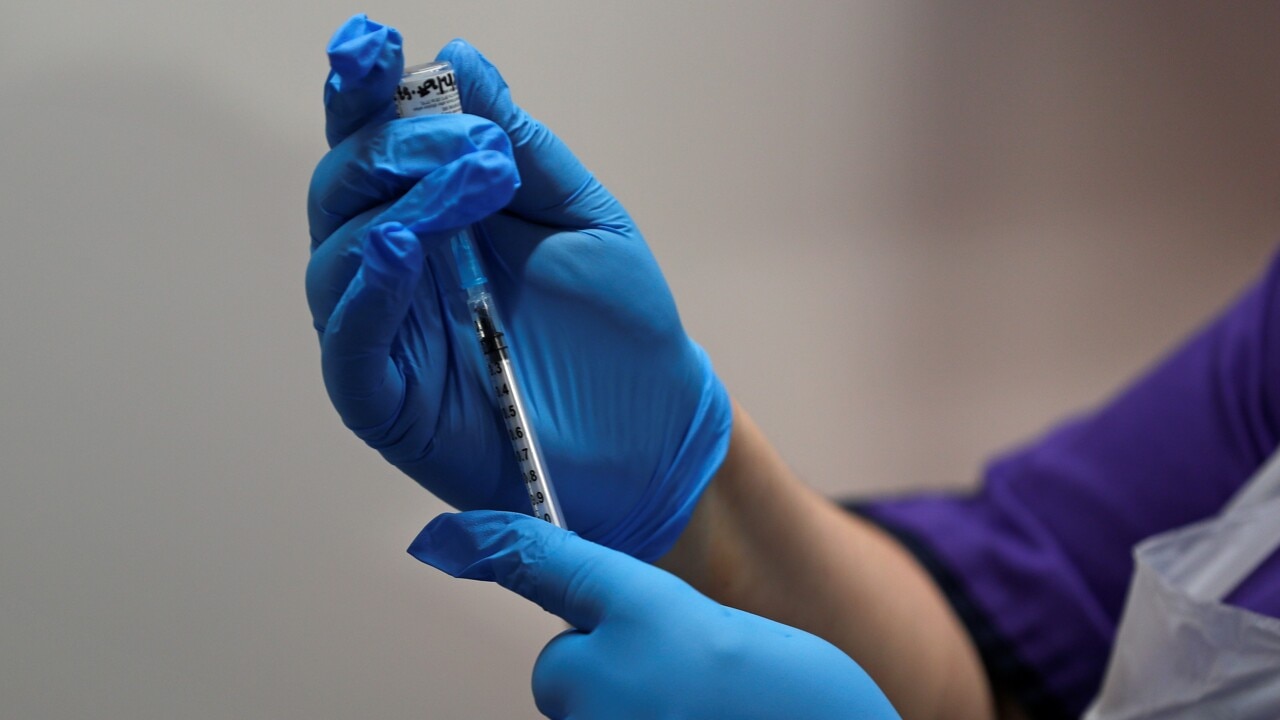
Coronavirus
Don't miss out on the headlines from Coronavirus. Followed categories will be added to My News.
Australians are expected to receive the Pfizer-BioNTech coronavirus vaccine from mid to late February, Prime Minister Scott Morrison said.
Mr Morrison said high-priority groups, including healthcare and quarantine workers among others, would receive the treatment first.
He hoped the initial phase would start with about 80,000 inoculations a week.
However, Mr Morrison said this timeline with depend on a number of factors including final approval from the Therapeutic Good Administation, and delivery of the vaccine from the supplier.
He said the Pfizer vaccine would only be delivered and released once TGA approval was given, which he anticipated would occur by the end of January.
Mr Morrison dismissed claims the vaccine release had been delayed, adding health officials had been moving “swiftly and safely” to introduce the treatment
“Doing that is critical to public confidence in the vaccine. We have set out cautious timetables … but behind the scenes the officials you see here have led a process … to ensure we are seeking to better those [vaccine rollout timetables]. We don’t want to make promises that we can’t keep - that is incredibly important,” Mr Morrison said
Mr Morrison warned that the vaccine was not a “silver bullet”.
“Once the vaccination process starts, COVID-safe practices do not end,” he said.
He said the approval process for the AstraZeneca vaccine should be completed in February, but he did not have a clearer timeline at present.
Once the AstraZeneca treatment had been cleared by the TGA more groups of Australians would be vaccinated, federal health department secretary, Professor Brendan Murphy, said.
Prof Murphy said this was because it would be manufactured locally and thus have guaranteed supply line.
He said vaccine hubs would be set up across the nation to help ensure people got two doses of the same vaccine.
Over the second quarter of 2021 “a significant portion” of the Australian population would be vaccinated, he said.
He added children would likely be among the last to receive the jab.
“The very last group that we might consider [vaccinating] is children. We know that children are at very low risk of getting COVID and transmitting COVID and the vaccine has not yet been thoroughly tested against children,” he said.
PM TO HOLD EMERGENCY MEETING
Prime Minister Scott Morrison is providing an update on Australia’s coronavirus response.
An emergency national cabinet meeting has been called so leaders can discuss further measures to protect Australia against the mutated strain of COVID-19 ravaging the UK.
Scott Morrison announced the special meeting would be held on Friday following a week of medical expert panel meetings in which a proposal to strengthen international travel processes has been developed.
“The meeting is to consider a proposal that I requested through our Chief Medical Officer, Professor Paul Kelly, from our national expert medical panel, the AHPPC,” the Prime Minister said on Wednesday evening.
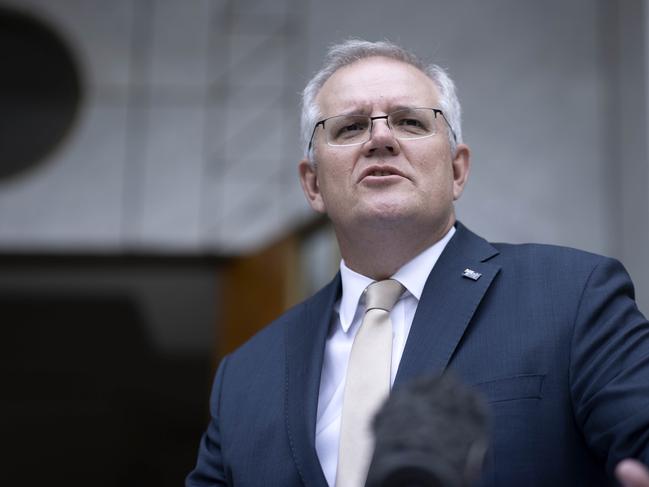
“The proposal is to further strengthen the COVID safety of end to end international travel processes, from arrival at Airport of embarkation in the exit country to final clearance from hotel quarantine in Australia.”
He said the AHPPC has been meeting every day and this week had largely been focusing on how to deal with the UK strain.
“The AHPPC has continued to meet every day during this most recent outbreak, and had an initial discussion of their proposal today,” Mr Morrison said.
“They will discuss the proposal further tomorrow before making a formal submission to national cabinet.”
The national vaccine strategy will also be discussed at the Friday meeting.
NO NEW LOCAL CASES IN VICTORIA, NSW
Victoria has recorded no new cases of coronavirus on Thursday as 32,767 people were tested in the past 24 hours.
There are 38 active cases of COVID-19 across the state, 28 of which are locally acquired cases.
There are now more than 200 testing centres in operation across Victoria, including new testing sites in areas where large numbers of close contacts and exposure sites have been identified.
More than 1300 close contacts are being monitored across the state, including 900 primary close contacts and 400 secondary close contacts.
The DHHS said the close contacts were located in the local government areas of Bayside, Casey, Kingston, Monash, Whitehorse, Stonnington, Maroondah, Boroondara, Glen Eira, South Gippsland and East Gippsland.
The state recorded one new case on Wednesday, which was later revealed to be a mystery case.

In NSW, health authorities are investigating a positive coronavirus test result recorded around 10am on Thursday morning.
The case was detected just an hour before the press conference at 11am.
The person who was infected resides in the northern zone of Sydney’s northern beaches, where a large COVID-19 outbreak began in mid-December.
That cluster caused authorities to lock the northern part of the area down, with a plan to lift that restriction on Saturday.
The infected man had been in self-isolation prior to exhibiting symptoms and testing positive, NSW chief health officer Kerry Chant said.
“It does highlight that we have that level of community transmission in that northern zone. This is the risk that we want to make sure we tackle very promptly,” she said.
It’s unknown exactly how the man got infected.
“Investigations as to the source of this man’s infection are urgently underway,” Dr Chant said.
In the 24-hour period up until 8pm Wednesday night, there were no new locally transmitted cases. However, in that period there were six new cases in hotel quarantine.
More than 27,000 people were tested for COVID-19 in that period, but Acting Premier John Barilaro indicated those numbers need to go up.
VACCINE TO BE ROLLED OUT EARLIER
On Wednesday, it emerged Australians will receive a COVID-19 vaccine two weeks earlier than thought after the Health Minister revealed the government’s rollout schedule.
Greg Hunt has confirmed to News Corp Australia that a coronavirus vaccine would be administered in early March, having previously aimed to begin the rollout at the end of that month.
Mr Hunt said Australians would first receive the Pfizer vaccine, already administered in Europe and the US.
Australia will receive up to 80,000 doses every week from later this month once the vaccine has been approved by the Therapeutic Goods Administration (TGA).
Approval is expected later this month, with the AstraZeneca vaccine also likely to be given the green light in late March.

The elderly and aged care workers, along with hotel quarantine and border workers will be prioritised in the first phase of the rollout.
The rollout is expected to be completed by the end of October.
Mr Hunt tweeted in September a vaccine would be “available progressively throughout 2021 in Australia commencing in January, if promising trials prove successful”.
Labor frontbencher Ed Husic said the tweet undermined Mr Hunt’s claim the vaccine was ahead of schedule.
“The government is very good at the spin in suggesting that it’ll be two weeks earlier,” he told Sky News.
“The government has consistently made announcement and failed to deliver, and they really cannot, on something as sensitive and important, be seen to be misleading the public.
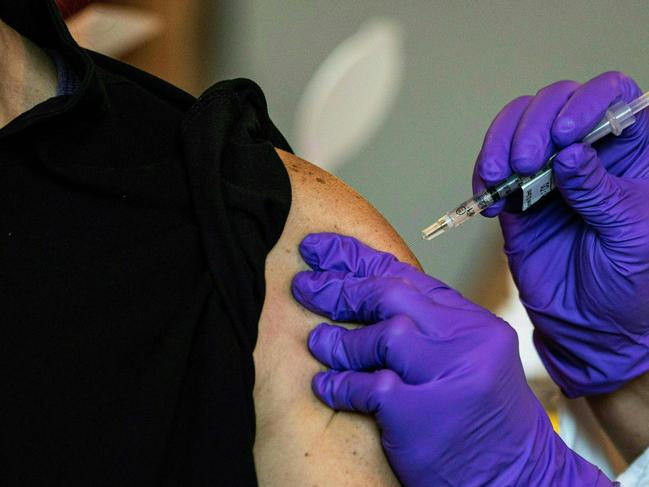
“That’s what I’m genuinely concerned about: that they’ve made claims that we get access to these vaccines sooner.”
No nation has given a COVID-19 vaccine full approval, but emergency approval has been granted by various countries. The World Health Organisation has also listed the Pfizer vaccine for emergency approval.
More than 1.3 million Britons have received either the Pfizer or AstraZeneca jab, including nearly a quarter of the country’s population over 80.
UK Prime Minister Boris Johnson said he hoped to have all Britons deemed a priority inoculated by February 15, weeks before any vaccine is administered in Australia.
Labor leader Anthony Albanese has accused the government of dragging its feet on the vaccine, criticising the lag between its approval and rollout.
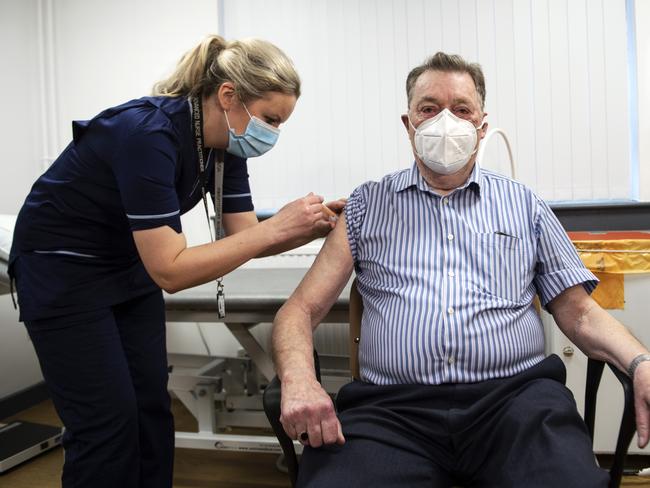
But Scott Morrison stressed the situation in Australia is not dire enough to warrant taking a shortcut on safety.
“We just don’t tick it off and then take a wild guess at what we then put in people’s arms,” the Prime Minister told 2GB Radio on Tuesday.
“We’ve got to get it safe and we’ve got to get it right. We’re not in a situation like the UK, they had 58,000 cases yesterday.
“They’re in a position where they have to do emergency vaccine vaccinations in those places. In Australia that’s not our situation, so we can’t cut corners on the vaccine.”
Mr Morrison claimed Mr Albanese had turned down a briefing on vaccines in December, accusing him of politicising the issue.
FEARS HOTEL QUARANTINE MAY NOT CONTAIN UK SUPER STRAIN
Australian health authorities fear quarantine may not contain a UK super strain of COVID-19 detected in four states.
The new, faster spreading variant has been detected in returned travellers in Sydney, Perth, Victoria and South Australia.
Australian Medical Association president Omar Khorshid told The Australian he was concerned that the UK virus or another super strain could enter Australia and escape hotel quarantine.
“We’ve already seen our quarantine systems fail significantly with the virus escaping from quarantine in Victoria, NSW and South Australia; we’ve also seen breaches of quarantine in other places like WA although with no transmission occurring,” Dr Khorshid said.
“But with this highly transmissible variant of COVID, either the UK or South African one, there’s going to be more potential for that spread to occur from an infected traveller to a quarantine worker.”
PM HINTS AT EASING OF BORDER RESTRICTIONS
Earlier, Scott Morrison said he was confident NSW-Victorian border restrictions will ease soon.
The Prime Minister told radio 3AW he spoke to Premier Daniel Andrews on Monday night and they discussed the NSW-Victorian border “to see if we can get a better pathway for Victorians home as soon as possible”.
During the interview, Mr Morrison said wastewater testing found outside of greater Sydney was COVID-free.
He said he hoped people who had not visited COVID-affected areas would soon be allowed through Victoria’s border.
“They are getting on top of this. The systems are working. We are making great progress in both. That should hopefully mean we can restore settings to where they were as soon as possible,” Mr Morrison said on Tuesday.

The PM said Australia will not cut corners on a COVID vaccine rollout, when asked why Australia is slower than countries like the UK and US.
“We are moving this as swiftly as it safely can be done. But Australia is not in an emergency situation like the United Kingdom so we don’t have to cut corners,” he said.
SOUTH AUSTRALIA
SA Premier Steven Marshall announced a hard border closure to NSW would come into effect on January 1.
He said there will be few exemptions for those returning after 12.01am on Friday, but SA residents, people permanently moving states and essential travellers will be permitted.
All those groups will still need to self-isolate for 14 days.
SA Police Commissioner Grant Stevens said officers were already in place at border checkpoints.
Travellers returning to the state will need to demonstrate they met the criteria upon crossing the border.
He said people travelling from Queensland to South Australia must follow the most direct route through NSW and not spend “unnecessary time” interstate.
Mr Marshall said a 100km buffer zone will be implemented for cross-border communities, allowing people in Broken Hill and Wentworth to freely enter the state.
“We’re also going to be putting some transit allowances because there are people travelling through NSW who won’t be stopping,” Mr Marshall said.
Mr Marshall said border arrangements with Victoria would not change.
VICTORIA
Victoria’s border with NSW is now shut.
Any Victorian arriving from NSW before the deadline needed to get tested and quarantine for 14 days, the state government said.
On Wednesday, Victoria announced anyone who has been in the NSW regions of the Blue Mountains and Wollongong since Sunday had to return by 11.59pm on December 31.
The border was already closed to those in Greater Sydney and the Central Coast.
NORTHERN TERRITORY
The NT declared Greater Metropolitan Sydney a COVID-19 hotspot from midnight on New Year’s Eve, meaning anyone travelling from there must enter quarantine.
The NT had previously declared only seven Sydney suburbs hot spots.
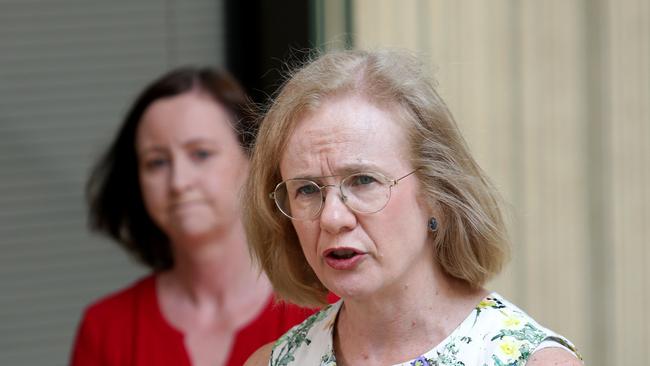
QUEENSLAND
Queensland, which had already declared Greater Sydney a hotspot, is assessing the situation as it unfolds.
Chief health officer Dr Jeannette Young said on Thursday she was closely monitoring the New South Wales cluster and the new Victorian cases.
“I’m urging Queenslanders travelling to these states to reassess their plans – if it is not necessary, then consider staying here,” she said.
“The next 24 hours are critical for Victoria and the NSW cluster is growing daily. Queensland is in a good position right now because we acted quickly to declare greater Sydney a hotspot.”
WESTERN AUSTRALIA
Western Australia has already shut its border to NSW travellers but on Thursday said it will close to Victorian travellers too.
From 12.01am on January 1, only exempt Victorian travellers will be allowed into WA, while returning residents must self-isolate for two weeks.
Anyone who arrived in WA from Victoria on or after December 21 must also self-quarantine for 14 days.
TASMANIA
Tasmania has declared nine Victorian sites as high-risk COVID-19 areas including restaurants, clubs, churches, shopping centres, hotels, and bars.
People in Tasmania who have visited are asked to self-isolate and contact the public health line on 1800 671 738.
Non-Tasmanians who have been in the areas in the specified times cannot enter Tasmania without an exemption.
It has measures in place requiring travellers from Greater Sydney to quarantine.
More details on travel alerts here.
AUSTRALIAN CAPITAL TERRITORY
Non-ACT residents are banned from entering the territory if they have travelled from hotspots, unless granted an exemption. That means all non-residents who have been in Greater Sydney, the Central Coast or Wollongong local government areas will be refused entry at the border.
ACT residents have to sign an online declaration form before returning then quarantine for 14 days.
Originally published as Coronavirus Australia: Pfizer vaccine set for February rollout
Read related topics:Scott Morrison


